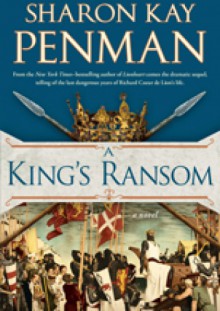
Edge of Eternity is Follett's bookend to his globe-trotting Century Trilogy that began with Fall of Giants followed by Winter of the World: a strikingly immense multi-generational saga featuring families from Germany, Russia, Wales, England and America, weaving historical world conflicts of the 20th century.
In this final installment, we see the grandchildren of the epic WWI story course through the remnants of WWII, the Cold War, and the civil rights movement of the 1960's. Follett's undertaking of the political crises of the next 3 decades, steered ahead by the superpowers of the world, range from Communism, Social Democracy, freedom and civil rights, the threat of nuclear annihilation, espionage and government corruption, weaving them with creativity, astute interpretation and insight.
The bulky novel is made highly readable by short chapters ending in enough suspense to drive the reader through a labyrinthine historical journey: a bus tour meandering through the seminal events that shaped the world of today. The most compelling of topics unfolded right here in America with the move for civil rights laws: issues which the Brothers Kennedy initially hesitated on while turning blind eyes to the violence waged on black people in the South.
Follett's mostly plausible characters are involved in real events, interacting with real world leaders; there are unmistakable characters resembling Aleksandr Solzhenitsyn, 'Hanoi' Jane Fonda and The Beatles. I say 'mostly plausible' since I had one teeny issue with Maria Summers, JFK's mistress: a strong black woman who was one of the Freedom Riders, who stands firmly for equality for black people, goes to bed and falls hopelessly in love with the white American president who refused to sign the bill for civil rights. I had the impression of the black female captive of a white plantation 'massa'. She stood out as a character out of character.
Finally, this epic fact and fiction heavyweight is a story of victory: of freedom and democracy after a century of earth's bloodshed; the realization that was once a Dream - the attainment of civil rights after such violent struggle, culminating into the making of America's first black President; the failure of communism, the fall of corrupt world leaders and - not to be left unmentioned - the triumphant heralding of the birth of Rock and Roll.
All we are saying is give peace a chance
Let me tell you now
Ev'rybody's talking about
Revolution, evolution, masturbation,
Flagellation, regulation, integrations,
Meditations, United Nations,
Congratulations.
- John Lennon

 Log in with Facebook
Log in with Facebook 









